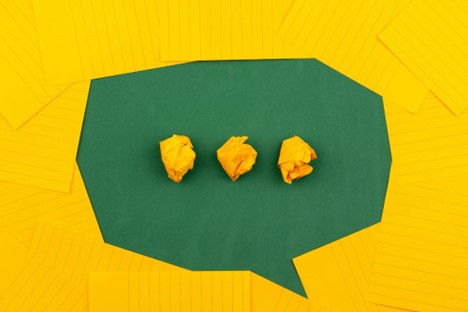The Psychology of Retail: Understanding Consumer Behaviour to Drive Sales

Understanding how customers operate is the centre of any good business operation. A retail business stands or falls on the regularity of its sales, which stands and falls on the clientele and their opinion of the business. While there are loads to pick apart in terms of this consumerist relationship in a standard B2C arrangement, there is a different set of criteria to analyse and understand when it comes to B2B dynamics.
Going forward, we’re going to examine the psychology of retail from a B2B perspective, using the example of a business selling wholesale plush toys in Australia.
Let’s begin.
B2C Concerns vs B2B
For those who aren’t aware of the terms, “B2C” stands for “Business To Consumer” and refers to any retail business that sells directly to the public. B2B stands for “Business To Business” and refers to establishments such as wholesalers, warehouses, and raw material processors.
Customer thinking when making a purchase has long been decodified in marketing circles as the “marketing funnel,” a series of psychological states of mind that then lead to a conversion (action that a business wants their customers to take), in this case, making a purchase. Now, online there are countless articles detailing the ins and outs of the marketing funnel, and many of these detail the differences between the B2B and B2C funnels. However there is a slight glitch, no one can seem to agree or disagree as to how different the funnels are; or even if they are different at all! Some even use the same funnel but just modify the definitions of each stage.
So how do we market to a B2B customer with such conflicting information?
B2B Customer Needs
An interesting article at the Harvard Business Review outlined what is possibly the main psychological difference between B2B and B2C customers. Where B2C customers are almost always predominantly concerned with minimising expenditure. While we believe everyone loves a bargain, recent studies show that B2B customers are more concerned with psychological stability, even if they have to pay a little bit extra to get it.
What this means is, your B2B toy shop will be offering toys that follow the current trends in play, and attempt to offer a competitive price. However, running a wholesale toy business to sell stock to shops will prove more fruitful if you focus on several key elements of your business:
Ability to Choose
Everyone enjoys the civil liberty of choice, however in a B2B sphere this dynamic the freedom of choice takes precedence over a predetermined solution. A common dynamic in relationships is when someone is venting about an issue to have their feelings or concerns validated, yet when the recipient partner offers solutions it can feel demeaning and invalidating.
There is a similar dynamic in B2B customer/retailer relationships. The customer has the best idea of the problem they’re trying to solve. When a retailer approaches them saying “We have x amount of solutions to a brief” rather than “We can give you this” it is far more attractive to the consumer to have the freedom to choose which solution best works for them.
In the context of a toy store, your clients may be trying to acquiesce to a recent rise in fluffy bunnies. If you only offer realistic bunnies they may like that option, but they’re far more likely (by 58% according to the aforementioned study) to buy from the wholesaler that offers realistic bunnies, cartoon bunnies, multi-coloured bunnies, etc.

Human Interaction
Business is stressful, and though they say that “time is money”, we think it’s more accurate to say “time is an investment.”
You spend time on your business for a variety of reasons, but when there’s an issue getting stock from your supplier, studies show that over 70% of B2B customers would rather wait to speak to a human customer support officer, than an AI chatbot.
This is likely due to the emotional content of seeking support. It’s easier and more personable to talk with a person about your problems, than it is to get immediate support from a robot; which kind of feeds into the previous stipulation; there is an importance in having a choice of a solution, rather than just a solution.
From this statistic we can understand that B2B consumers are looking for not just answers to questions, but they’re looking for an ongoing business relationship that is founded on respect, trust, and symbiosis.

The Opportunity to Grow
The final major criteria that separates B2B from B2C clientele is the need to feel like they aren’t just being given answers, but are actively learning and applying new knowledge.
Any business that doesn’t practise growth strategies is doomed to fail. So when a B2B customer comes to your toy company after complaining of a shortage, it’s much more worthwhile to offer the customer resources that will help them avoid a shortage of their bunnies in the future, rather than just rapidly shipping an extra crate or two of bunnies.
While the latter does solve the problem, it offers no opportunity for your clients’ business to become more self-sufficient, it robs you and them of a chance to engage and develop your professional relationship, and it saps them of their freedom of choice.

Back To Business
All relationships are based on reciprocal equity, this does not stop at business partnerships. The common element of the three core desires of B2B customers found in the Harvard Business Review study is that they all facilitate several key elements of any equitable, mutually beneficial relationship. They all emphasise the fostering of honest communication. They all place value on the autonomy of the client, and they all show the client that they aren’t just being dealt with like a problem, but that they and their business are inherently valuable to you as their supplier. Where B2C customers are more concerned with having their needs met as quickly, cheaply, and efficiently as possible, B2B customers are more concerned with fostering long-lasting business partnerships. That is the main difference in B2C and B2B consumer psychology.
